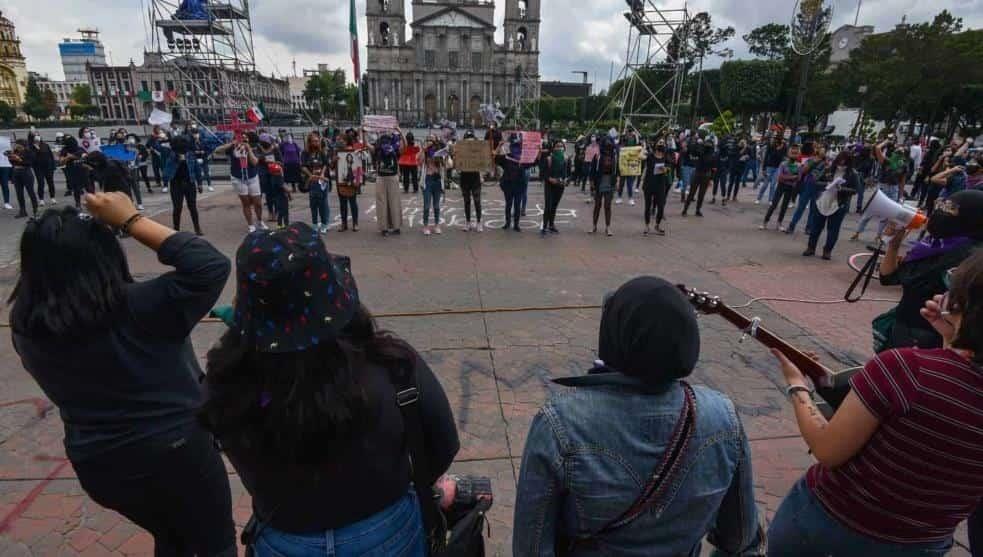Within feminist groups, there are differences. In the weekly podcast titled "The dark side of sisterhood," we spoke with Aurissi Unda, part of the Brujas del Mar collective. She has experienced this matter because feminists are in constant learning to express their differences with others. Arussi says that as administrators of feminist online pages, they have to face misogynistic messages from the "machotrolls," complaints related to domestic violence, or pro-life groups' attacks. However, it gets complicated when they receive criticism from other women. "When the criticism comes from Feministlán - referring to feminist groups, Aurissi says - that's when you say holy mother, if we are feminists, why?
Criticism from others has become one more factor to take care because many women understand sisterhood differently. "
What is sisterhood?
Read: The insurgent women who made Mexico's Independence possible
The word "sisterhood" is part of the feminist glossary; it's popular because the concept tries to: "end rivalry between women" and, on the contrary, generate ties "between those who have been created by the patriarchal world as enemies."
In the podcast, Aurassi points out that women don't have to be friends but rather accompany each other since they have similar experiences by having the same bodies.
In France, "sorority" is known as 'sororité' (which comes from the Latin sor, sister); in Italy, sororitá. Sisterhood in the United States. It means "friendship between different women and peers, accomplices who propose to work, create, convince, who meet and recognize," according to Marcela Lagarde.
Lagarde develops this concept from the Italian term "afidamento" that refers to this alliance between women. "We have to "afidarnos" Lovera said in a talk.
"A woman can feel the social disvaluation of her sex so vividly as not to bear or want to inflict on another the situation of being less than one of her equals," the Milan group writes.
Tunning in with this concern invites us to express admiration for a woman, and respect established hierarchical relationships.
What is "affidamento"?
Read: Women together, the secret to making things happen
In an interview with Marcela Lagarde, she points out that "affidamento" invites us to have confidence in others. Lagarde assumes that patriarchy has created women not to have confidence in other women "that there is envy, estrangement, and misogyny loaded with affection towards other women, that there is aggression," she says.
"Seeking to refine ourselves, having confidence in others is vital for women to act in groups and collectively support one another. Even the least cordial of all, as Sor Juana said, has something of a "good vibe." We must stop repeating misogynistic and macho sayings against women. That is "affidamento", trusting the others. "
For Lovera, there must be a bit of both. "It's not enough to intertwine, to show solidarity, that is like a volunteer act.
The "affidamento" is trust and recognition; it waves through rationality and unity of objectives. Solidarity is a human act; it can be set afloat, only by being a woman; it's a sisterhood without reason. Instead, "affidamento" builds strong ties, interested in the future, it chooses with whom I affiliate how and for what ".
Read: ”This is no longer the CNDH but Okupa, a refuge for women"
The differences between women
Arussi Unda recounts her experience of expressing disparities with other women. "How can you talk real without getting offended?" asks Majo, producer of the La Cadera de Eva Podcast. Arussi responds by inviting us to be open and recognize that we are all part of this struggle, and we are still forging this path.
Traducción : Valentina K. Yanes


